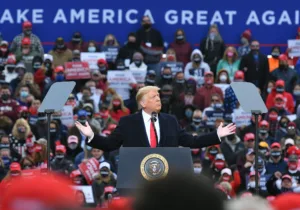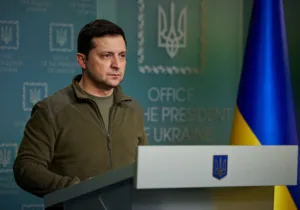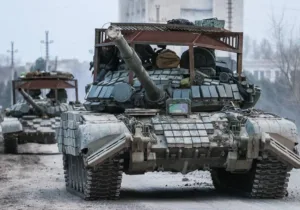On March 14, 2023, a Russian Su-27 fighter jet struck an MQ-9 Reaper that was flying in international air space over the Black Sea. The $32M MQ-9 drone had to ditch into the sea, its hard drive presumably wiped remotely before crashing. Both countries immediately pointed fingers at each other, but video surveillance shows a two-ship of Su-27s repeatedly flying at the drone in a highly aggressive manner while dumping fuel in the drone’s flight path. Several senior US military officials suggested that a lack of pilot competence might have played a role in the collision. While this could be considered an act of war, the fact that the MQ-9 is unmanned helps explain the muted US response.
Both the White House and the Pentagon condemned the action and the Statement Department summoned Russian Ambassador to protest the event. Meanwhile, Russia responded by awarding medals to both pilots involved in the incident as well as sending a ship to recover the wreckage of drone. This is the first direct confrontation between Russia and the US since the invasion of Ukraine began over a year ago. Aircraft intercepts between Russia and the US and are not uncommon; however, the manner in which the intercept took place is part of a pattern of aggressive actions, according to the Secretary of Defense Lloyd Austin III.
Observations and implications
First, Vladimir Putin shows no sign of changing his pattern of aggressive risk-taking. The Russian leader recently suspended Russia’s participation in the New START Treaty and deployed tactical nuclear weapons to Belarus. These are aggressive actions by an increasingly isolated Russian dictator. While the US shouldn’t go to war over the loss of a drone, it is important to ensure Putin understands that an attack of a US aircraft in international air space comes with consequences. The US response of “we are going to continue to fly this route” is a non-response. One idea is to send Ukraine the MGM-140 Army Tactical Missile System (ATACMS), as suggested by the WSJ. This would be a message that Putin understands.
Second, China is watching; not only is Moscow increasingly aggressive towards the US, but so too is Beijing. Tensions continue to rise in the South China Sea and China is closely following our responses to Russian military aggression. No doubt our response to the downing of the MQ-8, or lack thereof, will factor into Xi’s future actions.
Third, the world is paying close attention to America’s system of strategic alliances, whether friends or foes of the US. Countries like Iran and North Korea prefer the US strategy of non-escalation because it gives them freedom of maneuver. Iran is on the precipice of having weapons-grade enriched uranium and North Korea continues to test and refine their ICBM capabilities. Allies like Germany and Japan are increasingly concerned about US resolve and as a result, have significantly upped their military spending.
For such a time as this
For such a time as this, the US must show moral resolve and clarity in confronting escalating authoritarian aggression. Putin has shown himself to be a dangerous and brutal leader. As a distraught colleague of mine from Kyiv recently wondered, how can one man commit so much evil and yet go unchallenged? Unfortunately, Putin is not the only leader to have garnered immense unchecked authority. Xi Jinping has consolidated power in China in a way not seen since Mao and both Iran and North Korea have harsh regimes in place that care not for the lives of their citizens.
President Reagan opined in his famous Evil Empire speech that while military strength is important, the Cold War was really a test of moral will and faith and therefore ultimately a spiritual battle. In post-Christian America, Reagan’s rhetoric about good, evil, and spiritual battles makes some readers squirm. Even so, it’s the Bible which best explains the nature of good and evil and man’s propensity to gravitate towards the latter. It’s the Bible that warns of the temptations of pride, self-indulgence, and unaccountability that test the character of leaders. Even King David, a man after God’s own heart, struggled with choosing good over evil when he came to power. If leaders like David struggled, what is the likelihood that Putin and other despots change direction when not directly confronted with strength? For such a time as this, the US needs to recall the same faith-based resolve leaders like Washington, Lincoln, and Reagan demonstrated.







 Live in the DC area? Sign-up for Providence's in-person events list!
Live in the DC area? Sign-up for Providence's in-person events list!